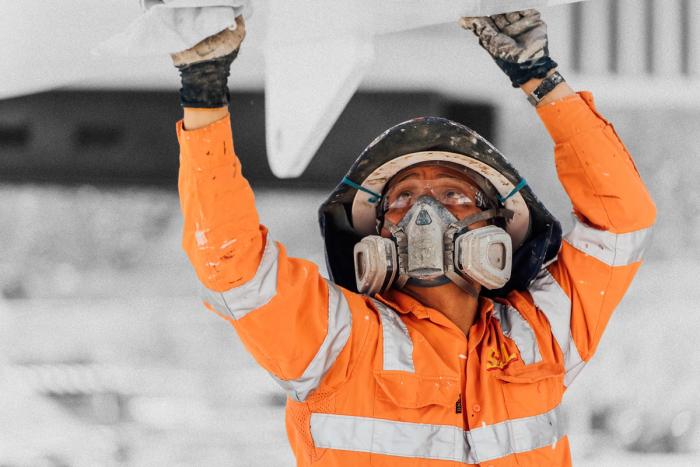Research Library
The MATES Research Library is a central hub for publications, evidence and insights that inform, evaluate and strengthen our approach to suicide prevention and mental health across our industries.
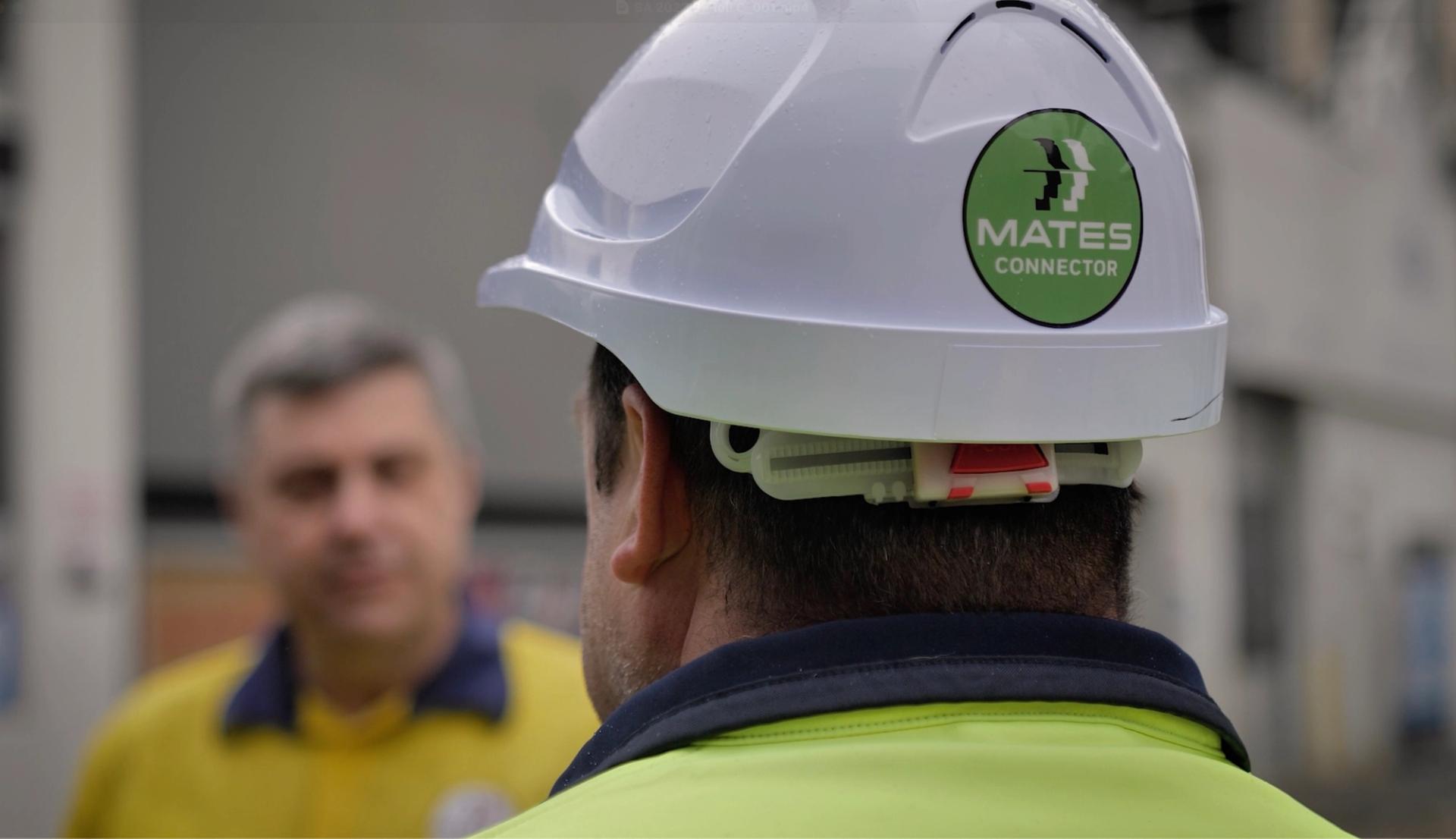
QLD / NT
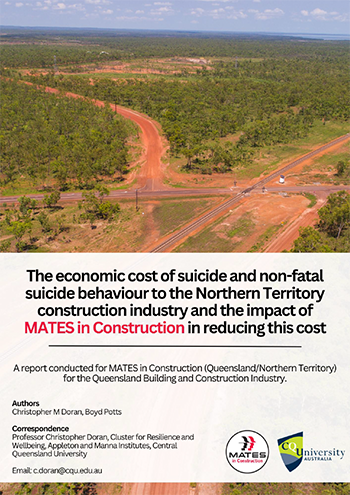
2024
The economic cost of suicide and non-fatal suicide behaviour to the Northern Territory construction industry and the impacts of MATES in Construction in reducing this cost
Publisher:
A report conducted for MATES in Construction (Queensland/Northern Territory) for the Queensland Building and Construction Industry.
Authors:
C Doran, B Potts
Overview:
This study draws on the empirical research and a validated costing methodology to quantify the economic cost of suicide and non-fatal suicide behaviour to the Northern Territory (NT) construction indu...
This study draws on the empirical research and a validated costing methodology to quantify the economic cost of suicide and non-fatal suicide behaviour to the Northern Territory (NT) construction industry and estimate the impact of MATES in Construction in reducing this cost.
NZ
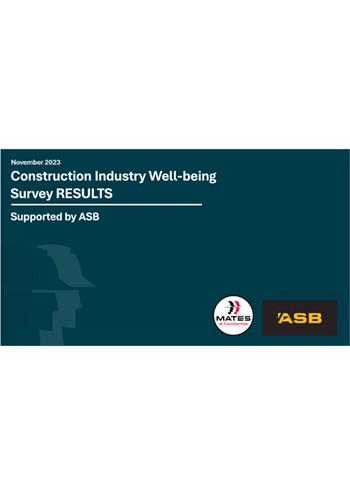
2024
Construction Industry Well-being Survey Results (NZ)
Publisher:
Supported by ASB
Authors:
MATES in Construction NZ
Overview:
The construction sector is a cornerstone of Aotearoa/New Zealand’s (NZ) economy, contributing NZ$17.6 billion and employing 10.7% of the national workforce as of mid-June 2023 (MBIE, 2024). Despite it...
The construction sector is a cornerstone of Aotearoa/New Zealand’s (NZ) economy, contributing NZ$17.6 billion and employing 10.7% of the national workforce as of mid-June 2023 (MBIE, 2024). Despite its economic significance and vibrant nature, the industry can present significant challenges to its workforce, negatively affecting their mental health, well-being, and ill-being* (Morrison, Tu, & Jenkin, 2022). Amidst these stressors, one of the most pressing issues facing the industry is its disproportionately high rate of suicide. Studies have revealed that construction workers experience some of the highest suicide rates across occupations in NZ, with an average of 1 worker lost to suicide every 5 days in 2023 (Jenkin & Atkinson, 2021; Ministry of Justice, 2024).
QLD / NT
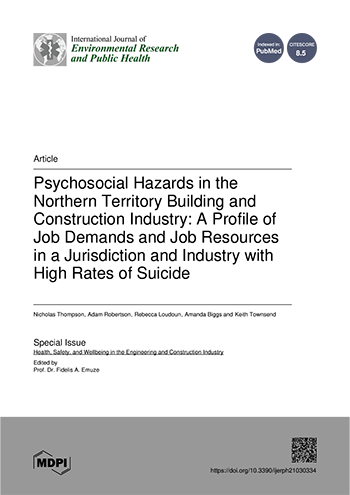
2024
Psychosocial Hazards in the Northern Territory Building and Construction Industry: A Profile of Job Demands and Job Resources in a Jurisdiction and Industry with High Rates of Suicide
Publisher:
International Journal of Environmental Research and Public Health
Authors:
N Thompson, A Robertson, R Loudoun, A Biggs, K Townsend
Overview:
The work environment for building workers in Australia’s Northern Territory (NT) is characterised by concerningly high rates of distress and suicide at both a jurisdictional and an industry level. Wor...
The work environment for building workers in Australia’s Northern Territory (NT) is characterised by concerningly high rates of distress and suicide at both a jurisdictional and an industry level. Work-related psychosocial hazards are known antecedents of work-related distress and suicide, and more research is required to understand how these hazards impact workers in this unique building context. This paper examines the unique work environment in the NT building industry by comparing psychosocial hazards in the NT with those in the broader Australian building and construction industry.
AUS
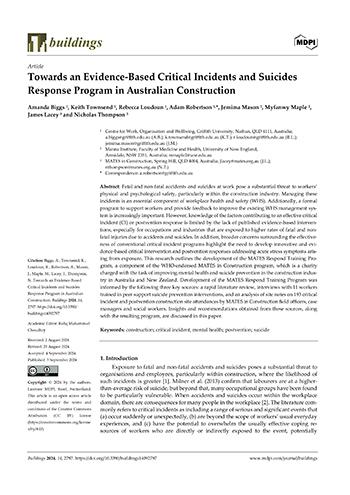
2024
Towards an Evidence-Based Critical Incidents and Suicides Response Program in Australian Construction
Publisher:
MDPI
Authors:
A Biggs, K Townsend, R Loudoun, A Robertson, J Mason, M Maple, J Lacey, N Thompson
Overview:
Fatal and non-fatal accidents and suicides at work pose a substantial threat to workers’ physical and psychological safety, particularly within the construction industry. Managing these incidents is a...
Fatal and non-fatal accidents and suicides at work pose a substantial threat to workers’ physical and psychological safety, particularly within the construction industry. Managing these incidents is an essential component of workplace health and safety (WHS). Additionally, a formal program to support workers and provide feedback to improve the existing WHS management system is increasingly important. Development of the MATES Respond Training Program was informed by the following three key sources: a rapid literature review, interviews with 11 workers trained in peer support suicide prevention interventions, and an analysis of site notes on 193 critical incident and postvention construction site attendances by MATES in Construction field officers, case managers and social workers.
AUS
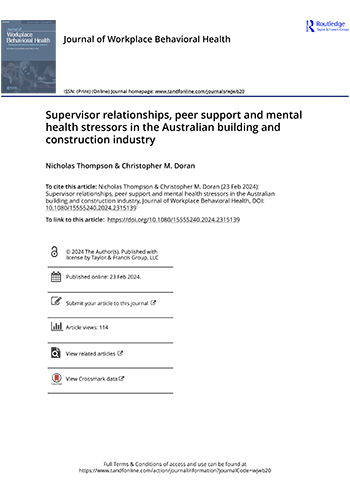
2024
Supervisor relationships, peer support and mental health stressors in the Australian building and construction industry
Publisher:
Routledge Taylor & Francis Group: JOURNAL OF WORKPLACE BEHAVIORAL HEALTH
Authors:
N Thompson and C Doran
Overview:
MATES operationalized a workplace mental health framework consisting of five domains in 2019 in a move toward a broader systems-based approach to workplace mental health in the building and constructi...
MATES operationalized a workplace mental health framework consisting of five domains in 2019 in a move toward a broader systems-based approach to workplace mental health in the building and construction work environment. Using job demands-resources (JD-R) theory and a revised ver-sion of the People at Work Survey (PAW-Con), the objective of this study is to explore workplace mental health trends within the Australian building and construction industry with the aim of identifying areas of improvement required to mitigate psychosocial hazards at work.
AUS
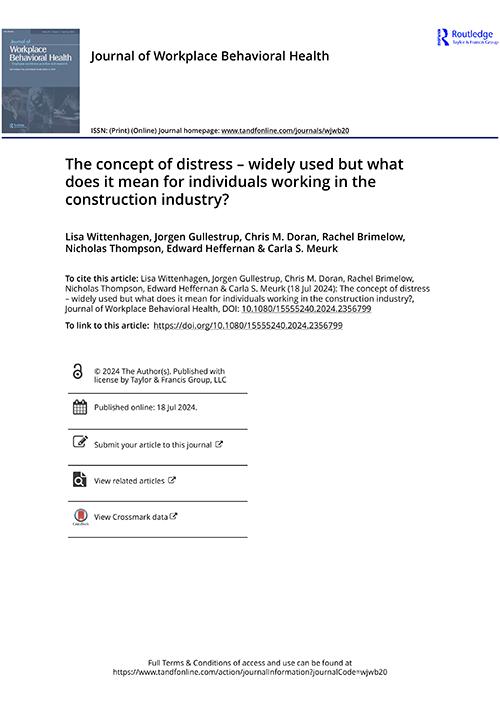
2024
The concept of distress – widely used but what does it mean for individuals working in the construction industry?
Publisher:
Journal of Workplace Behavioral Health
Authors:
L Wittenhagen, J Gullestrup, C Doran, R Brimelow, N Thompson, E Heffernan & C Meurk
Overview:
Distress is a frequently used concept, conveying a variety of meanings. Clear definitions are needed to promote common understanding, effective communication, and the development of solutions. One occ...
Distress is a frequently used concept, conveying a variety of meanings. Clear definitions are needed to promote common understanding, effective communication, and the development of solutions. One occupation in which workers disproportionately report distress is the construction industry. To implement effective models of care, a construction industry specific definition of distress is needed. Reducing distress may be explicitly achieved by offering appropriate coping strategies and actions for individuals to regain control and agency; however, a safe and supportive help-offering environment is a prerequisite for promoting help-seeking, and help-uptake behaviors.
AUS
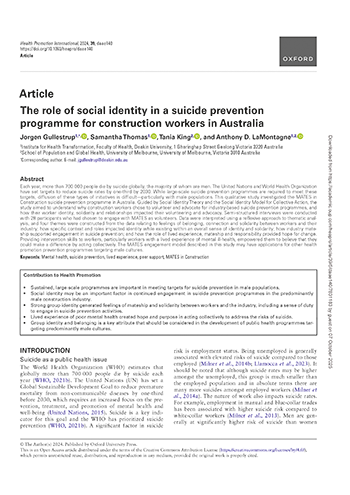
2024
The role of social identity in a suicide prevention programme for construction workers in Australia
Publisher:
Oxford Academic
Authors:
J Gullestrup, S Thomas, T King, A LaMontagne
Overview:
Each year, more than 700 000 people die by suicide globally, the majority of whom are men. The United Nations and World Health Organization have set targets to reduce suicide rates by one-third by 203...
Each year, more than 700 000 people die by suicide globally, the majority of whom are men. The United Nations and World Health Organization have set targets to reduce suicide rates by one-third by 2030. While large-scale suicide prevention programmes are required to meet these targets, diffusion of these types of initiatives is difficult—particularly with male populations. This qualitative study investigated the MATES in Construction suicide prevention programme in Australia. Guided by Social Identity Theory and the Social Identity Model for Collective Action, the study aimed to understand why construction workers chose to volunteer and advocate for industry-based suicide prevention programmes, and how their worker identity, solidarity and relationships impacted their volunteering and advocacy.
WA
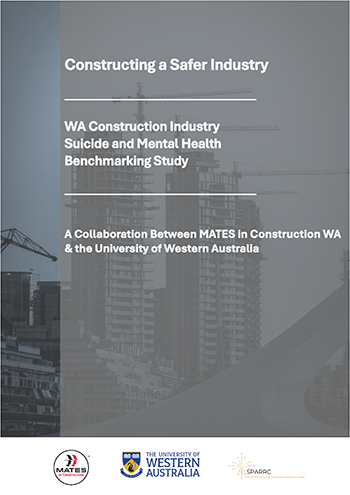
2024
Constructing a Safer Industry – WA Construction Industry Suicide and Mental Health Benchmarking Study
Publisher:
MATES in Construction WA and the University of Western Australia
Authors:
M Kyron, J Carpini, L Kanse, G Yeo
Overview:
To date, local [WA] industry has been lacking reliable data that provides a quality insight into the challenges faced by workers on site and within their personal lives. Results from this report under...
To date, local [WA] industry has been lacking reliable data that provides a quality insight into the challenges faced by workers on site and within their personal lives. Results from this report underscore the urgent need for targeted mental health interventions and the promotion of supportive workplace practices. Addressing these challenges will improve the overall wellbeing of construction workers and create a safer industry. By implementing targeted mental health policies, fostering positive workplace relationships, and providing accessible support services, the construction industry can take meaningful steps toward reducing suicide rates and promoting a safer, healthier work environment.
AUS
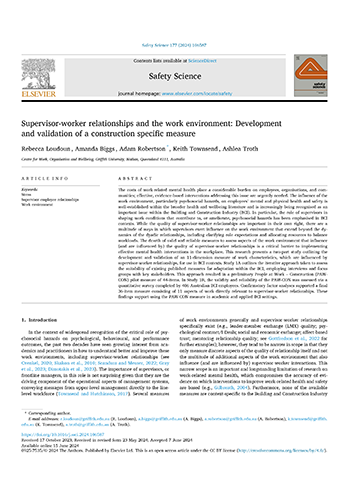
2024
Supervisor-worker relationships and the work environment: Development and validation of a construction specific measure
Publisher:
Science Direct
Authors:
R Loudoun, A Biggs, A Robertson, K Townsend, A Troth
Overview:
While the quality of supervisor-worker relationships are important in their own right, there are a multitude of ways in which supervisors exert influence on the work environment that extend beyond the...
While the quality of supervisor-worker relationships are important in their own right, there are a multitude of ways in which supervisors exert influence on the work environment that extend beyond the dynamics of the dyadic relationships, including clarifying role expectations and allocating resources to balance workloads. The dearth of valid and reliable measures to assess aspects of the work environment that influence (and are influenced by) the quality of supervisor-worker relationships is a critical barrier to implementing effective mental health interventions in the workplace.
AUS
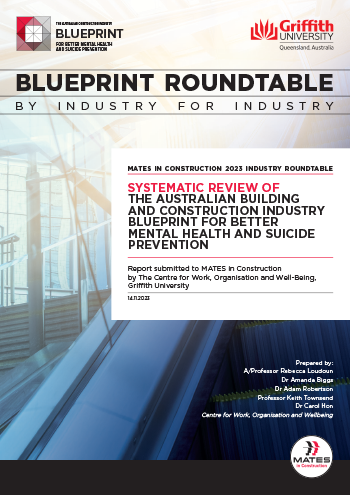
2023
Blueprint Roundtable – Systematic Review of The Australian Building and Construction Industry Blueprint for Better Mental Health and Suicide Prevention
Publisher:
Report submitted to MATES in Construction by The Centre for Work, Organisation and Well-Being, Griffith University
Authors:
A Biggs, A Robertson, K Townsend, C Hon
Overview:
This review aims to build a strong empirical foundation for the Blueprint for Mental Health and Suicide Prevention in the Building and Construction Industry. It involves analysing research on empirica...
This review aims to build a strong empirical foundation for the Blueprint for Mental Health and Suicide Prevention in the Building and Construction Industry. It involves analysing research on empirical interventions published before and after the original inception of the Blueprint in 2017 and best practices in enhancing mental health at work. Combining these sources is crucial for creating workplace mental health programs grounded in empirical evidence and characterised by forward-thinking innovation aimed at addressing a broad spectrum of issues while adhering to rigorously validated intervention theories.
